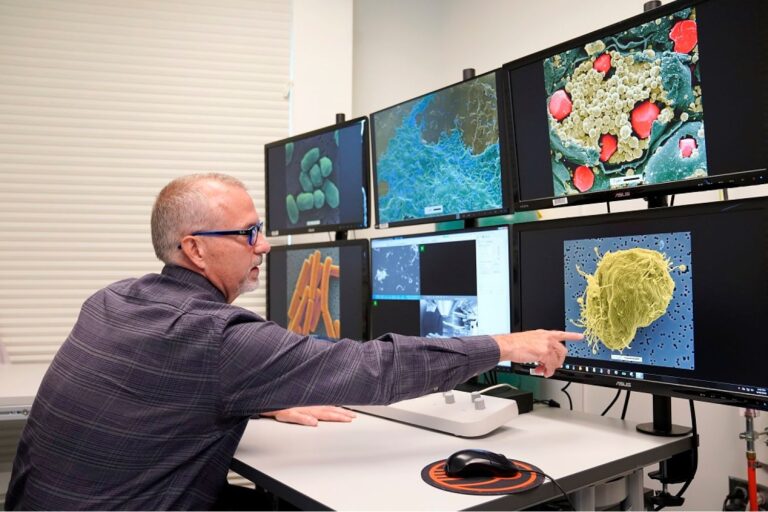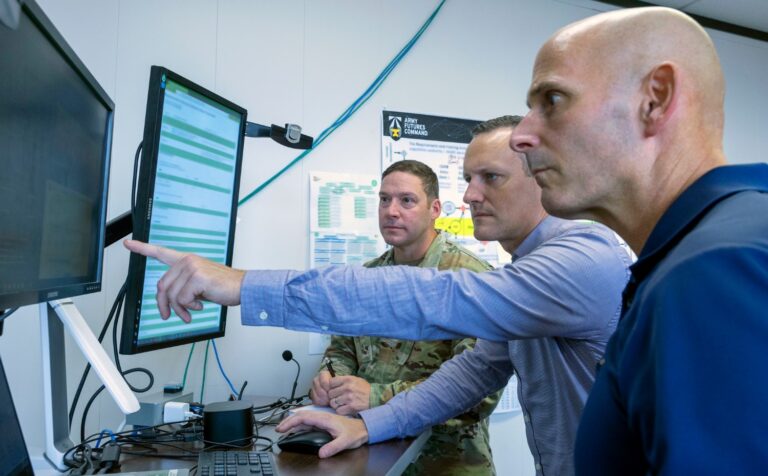Sierra Space’s Resilient GPS Satellite Program Reaches Key Milestone
LOUISVILLE, Colo. – Sierra Space, a leading commercial space company and defense-tech prime that is Building a Platform in Space to Benefit Life on Earth® and protect economic freedom in the Orbital Age®, announced today a key development milestone for the company’s Resilient GPS (R-GPS) program, marked by the successful completion of Systems Requirements Review (SRR). The SRR completion comes after the program’s kickoff in September and is a notable moment for Sierra Space’s national security program, with the ultimate goal of benefiting civilians and military operations through the protection of U.S. satellites.
“GPS is vital for everything from financial markets to civilian navigation”
GPS technology relies on satellite infrastructure and supports everything from ride-share and food delivery apps for civilians to critical navigation for military and defense operations. The increasing sophistication of adversarial threats, however, such as jamming and spoofing, necessitates advancements in GPS resilience. The U.S. Space Force’s (USSF) R-GPS program plans to address these challenges by integrating proliferated small satellites into the existing GPS architecture. Sierra Space’s expertise in small satellite technology and rapid deployment provides a competitive edge in achieving this goal.
“The successful Systems Requirements Review of our R-GPS program is a proof point for Sierra Space technology and a notable commercial milestone with our DoD customers,” said Erik Daehler, Vice President of Defense, Satellites & Spacecraft Systems at Sierra Space. “We are focused on efficiency and speed of development to outpace adversaries. The quick turnaround of two months from R-GPS program launch to this next step of development is exactly the speed at which commercial space companies should be moving. We look forward to the next phase of our R-GPS program and getting our satellite technology into orbit.”
Sierra Space announced in September a “Quick Start” R-GPS contract awarded by the U.S. Space Force Space Systems Command to produce design concepts for smaller, more cost-effective GPS satellites. Sierra Space was selected for this initial award due to the company’s innovative and integrated commercial concepts. The R-GPS program has been expedited under “Quick Start” authority granted by Congress under Section 229 of the National Defense Authorization Act. This authority allows for rapid response to emerging threats or technologies, enabling the U.S. Space Force to initiate new programs more swiftly.
“GPS is vital for everything from financial markets to civilian navigation,” said Lt. Col. Justin Deifel, head of the U.S. Space Force’s R-GPS program. “It’s a utility – like water or electricity – and we need to make sure it’s resilient for civilians and warfighters alike, so they have access to GPS when they need it most.”
Sierra Space’s strategic engagement in the R-GPS program underscores its commitment to delivering high-impact, innovative satellite solutions for defense applications. By leveraging its expertise in small satellite technology, rapid deployment capabilities, and advanced signal processing, Sierra Space aims to play a pivotal role in strengthening U.S. national security.
About Sierra Space
Sierra Space is a leading commercial space company at the forefront of innovation and the commercialization of space in the Orbital Age®, building an end-to-end business and technology platform in space to benefit life on Earth. With more than 30 years and 500 missions of space flight heritage, the company is reinventing both space transportation with Dream Chaser®, the world’s only commercial spaceplane, and the future of space destinations with the company’s inflatable and expandable space station technology. Using commercial business models, the company is also delivering orbital services to commercial, DoD and national security organizations, expanding production capacity to meet the needs of constellation programs. In addition, Sierra Space builds a host of systems and subsystems across solar power, mechanics and motion control, environmental control, life support, propulsion and thermal control, offering myriad space-as-a-service solutions for the new space economy.








